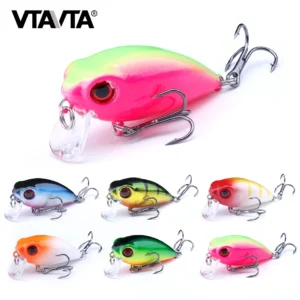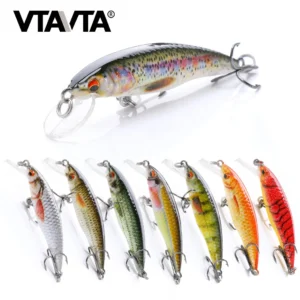Nature’s Therapy: How Fishing Lowers Cortisol & Improves Heart Health
In today’s fast-paced world, finding a moment of peace can feel like a luxury. Between work, family, and the constant hum of digital life, stress is almost unavoidable. But what if the key to better health—both mental and physical—was waiting just beyond the banks of your nearest lake? For millions of Americans, fishing isn’t just a pastime—it’s therapy. And now, science is catching up with what anglers have known for generations: fishing is good for the soul—and your heart.
In this article, we’ll dive deep into how fishing acts as natural therapy by reducing cortisol (the stress hormone) and improving cardiovascular health. Along the way, we’ll explore stories from real anglers, insights from health professionals, and tips on how to maximize fishing’s health benefits.
1. The American Stress Epidemic
According to the American Psychological Association, over 75% of Americans report experiencing symptoms of stress, including headaches, fatigue, and trouble sleeping. Chronic stress has been linked to heart disease, diabetes, depression, and a weakened immune system.
As life becomes more digitally connected, people are becoming emotionally disconnected from nature and themselves. That’s where fishing steps in—not as a mere hobby, but as a holistic practice for stress reduction.
2. Fishing: A Natural Form of Mindfulness
Fishing forces us to slow down. The rhythm of casting and reeling, the sound of water lapping against the shore, the stillness required to wait for a bite—these moments create a meditative state that closely mirrors formal mindfulness practices.
You’re not scrolling social media. You’re not stuck in traffic. You’re just… present.
Mindfulness-based practices have been shown to reduce anxiety, lower blood pressure, and increase overall well-being. Fishing checks every one of those boxes.
3. Cortisol: The Silent Health Killer
Cortisol is our body’s built-in alarm system. In small doses, it helps regulate metabolism, control blood sugar, and reduce inflammation. But when stress becomes chronic, cortisol production goes into overdrive—and that’s when problems start.
High cortisol levels over time can lead to:
High blood pressure
Weight gain, especially around the abdomen
Sleep disturbances
Weakened immune function
Increased risk of heart attack or stroke
To combat this, lifestyle changes are often more effective than medication. And that’s where fishing makes its entrance.
4. How Fishing Reduces Cortisol Levels
Fishing naturally lowers cortisol in several key ways:
Engagement in Nature: Simply being outdoors has been shown to lower cortisol. When you fish, you’re immersed in natural light, surrounded by trees or water—natural regulators of stress hormones.
Physical Movement: Even light movement—like casting, walking along a riverbank, or rowing a boat—encourages endorphin release and reduces cortisol.
Mental Distraction: Fishing keeps your mind focused on the moment, which can pull you away from anxious thoughts.
Social Connection: Whether you’re with friends, family, or talking to other anglers at the dock, social interaction boosts oxytocin, which lowers stress levels.
5. Heart Health Benefits of Regular Fishing
Fishing isn’t typically thought of as a “workout,” but consistent angling offers real cardiovascular benefits:
Lower Blood Pressure: The combination of nature, physical movement, and reduced cortisol can bring down blood pressure naturally.
Improved Circulation: Light aerobic activity and relaxed breathing during fishing promote healthy blood flow.
Reduced Risk of Heart Disease: A calmer nervous system and improved stress management correlate with a lower risk of heart disease.
Better Sleep: A day on the water helps regulate your sleep cycle, and better sleep is essential for heart health.
6. Stories from the Water: Real Angler Testimonials
“Fishing saved my life,” says James H., a 58-year-old veteran from Ohio. “After coming back from deployment, I struggled with PTSD. Traditional therapy helped, but it wasn’t until I started fishing every weekend that I truly began to feel peace.”
Angela M., a 36-year-old working mom in Florida, adds, “I used to pop anxiety meds every week. Now, I grab my spinning rod and head to the bay every Saturday morning. I haven’t needed a pill in months.”
These are just a few voices in a growing chorus of people discovering the life-changing effects of angling.
7. Scientific Backing: What Research Says
A 2021 study published in the International Journal of Environmental Health Research found that just 20 minutes of outdoor exposure significantly lowered cortisol levels.
Researchers at the University of Michigan discovered that regular exposure to natural environments (including while fishing) was associated with improved memory and attention spans.
A survey by the Recreational Boating & Fishing Foundation (RBFF) showed that 81% of anglers reported fishing helped their mental health.
8. The Mental Health Connection
Beyond cortisol, fishing helps in ways less measurable but equally vital:
Reduced Anxiety and Depression: Time outdoors and mindful focus naturally counteract depressive thoughts.
Boosted Self-Esteem: Catching a fish—even a small one—can give a tangible sense of accomplishment.
Increased Dopamine Levels: The anticipation of a catch and the reward of landing one stimulate dopamine, the “feel-good” neurotransmitter.
9. The Importance of Nature Exposure
The concept of “nature-deficit disorder” is becoming more mainstream in American health discourse. Fishing provides an accessible and enjoyable way to reconnect with nature, which studies show improves:
Mood
Energy levels
Creativity
Resilience
It’s not just about being outdoors—it’s about being engaged with the environment.
10. Making Fishing a Habit: Practical Tips
Here’s how to turn fishing into a healthy routine:
Start Simple: A rod, a reel, some bait, and a nearby pond are all you need.
Set a Schedule: Make time every week—even if it’s just 2 hours on a Sunday morning.
Invite Friends or Family: Social fishing increases accountability and connection.
Log Your Experiences: Keep a fishing journal to track not just catches, but how you felt.
Experiment: Try fly fishing, ice fishing, or kayak fishing to keep things fresh and engaging.
11. Gear Up for Health: Tools That Enhance the Experience
Investing in the right gear can make your experience more enjoyable and stress-free:
Comfortable Seating: A foldable chair or seat pad makes a long day by the water much easier on your back.
Polarized Sunglasses: Reduces glare and protects your eyes, making the experience more comfortable.
Tackle Organization: Having your gear in order eliminates frustration.
Hydration Pack: Stay hydrated to avoid fatigue and support heart health.
Also, the act of selecting and caring for your fishing equipment adds a layer of mindfulness and intention to the hobby.
12. Conclusion: Casting Lines for a Healthier Life
Fishing is more than just catching fish. It’s a gateway to better health, stronger hearts, and calmer minds. In a world that often feels overwhelming, the gentle ripple of water and the quiet anticipation of a bite can be the most powerful form of medicine.
So whether you’re a seasoned angler or someone curious about picking up a rod for the first time, know this: each cast is a small step toward wellness. The water is waiting. Your health is calling.





